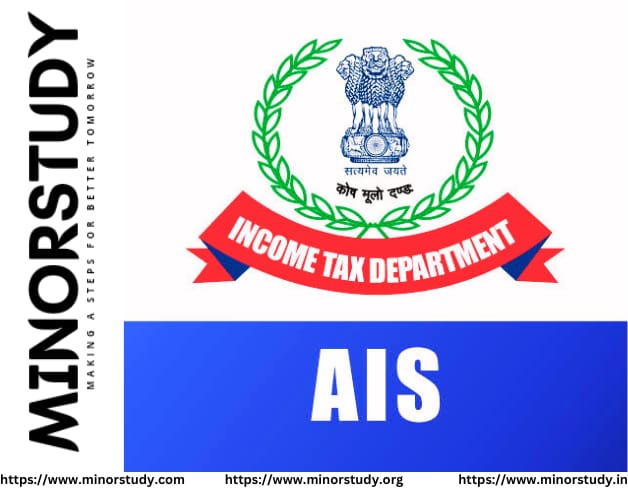💼 9 Surprising Truths About the Income Tax Department of India That Positively Impact Your Life
The Income Tax Department of India may seem like a daunting name to many, often associated with stress, paperwork, or audits. But when you dig deeper, you realize that this powerful institution is a cornerstone of India’s financial stability, governance, and welfare. From funding highways to hospitals, the Income Tax Department’s work affects your life every single day—often in unseen but powerful ways.
- 🏛️ What is the Income Tax Department of India?
- 🕰️ History of the Income Tax Department
- 📊 9 Eye-Opening Facts About the Income Tax Department
- 📅 Timeline of Evolution
- ❓ FAQs: Common Questions About Income Tax Department
- Q1. Is it mandatory to file Income Tax returns?
- Q2. What happens if I don’t file taxes?
- Q3. What is a PAN card and why is it important?
- Q4. Can I file returns myself?
- Q5. Is income tax applicable only to salaries?
- 🌟 Importance of the Income Tax Department in Daily Life
- 🏗️ Infrastructure & Development
- 🏥 Healthcare & Education
- 🪖 National Security
- 🧓 Pension & Social Welfare
- 🎯 Key Observances & Reforms
- 💬 Whishing Messages for Taxpayers & Officials
- 🔍 Key Contributions of the Income Tax Department
- 🧠 Importance in Our Lives
- 🌍 Importance to Society
- 🧾 Real-Life Story: Tax Saving with Awareness
- 🏁 Conclusion: A Silent Partner in Your Everyday Progress
- 📢 Final Wish
In this guide, we uncover the history, facts, timeline, significance, impact, FAQs, and societal role of the Income Tax Department of India—all wrapped in human-friendly language. If you’ve ever filed taxes, wondered where your money goes, or feared an IT notice, this article is for you.
🏛️ What is the Income Tax Department of India?
The Income Tax Department (ITD) is a government agency under the Department of Revenue, Ministry of Finance, responsible for direct tax collection in India. Its key role is to:
Assess and collect income taxes,
Enforce tax laws,
Prevent tax evasion,
Conduct investigations,
Facilitate refunds, and
Drive transparency in public finance.
It is also the guardian of India’s fiscal integrity, ensuring wealth redistribution through progressive taxation.
🕰️ History of the Income Tax Department
India’s taxation history dates back to ancient times, but the formal Income Tax Department began during British rule.
Key Historical Milestones:
| Year | Event |
|---|---|
| 1860 | First Income Tax Act introduced by Sir James Wilson to fund the British war effort |
| 1922 | Income Tax Act restructured, creating a central authority |
| 1947 | India’s independence – ITD becomes part of the Indian government |
| 1961 | Income-tax Act, 1961 enacted – foundation of today’s tax structure |
| 2003 | PAN (Permanent Account Number) made mandatory |
| 2017 | Introduction of e-filing and digital services |
| 2020-21 | Faceless Assessment and Faceless Appeals launched |
| 2024 | Over 8 crore PAN-holders, more than ₹18 lakh crore collected in taxes |
📊 9 Eye-Opening Facts About the Income Tax Department
Oldest Tax System: India’s structured taxation dates back to Manusmriti and Kautilya’s Arthashastra.
Taxpayer’s Charter: India is one of the few countries with a Charter of Rights for taxpayers, ensuring transparency and respect.
Faceless Assessments: Introduced in 2020, they eliminate physical interaction—making tax scrutiny non-biased and secure.
PAN Revolution: PAN cards, introduced in 1995, revolutionized tracking income and financial transactions.
Digital Dominance: Over 90% of returns are filed online, with quick processing and refunds.
Anonymous Grievances: The department allows anonymous complaints about tax evasion via its platform.
TDS/TCS System: Over 60% of taxes come from Tax Deducted at Source (TDS) and Tax Collected at Source (TCS) systems.
AI-Powered Monitoring: The ITD now uses AI and Big Data to catch anomalies and reduce manual oversight.
Funding Public Welfare: Your tax funds are used for education, infrastructure, defence, health, and welfare schemes.
📅 Timeline of Evolution
| Period | Development |
|---|---|
| Ancient India | Tax mentions in Rigveda and Manusmriti |
| 1860 | First Income Tax Act in modern India |
| 1922 | Comprehensive Tax Act introduced |
| 1947–1961 | Post-Independence restructuring |
| 1961 | Income-tax Act, 1961 in force |
| 2000s | Digital services like PAN, e-filing, refunds |
| 2020 | “Transparent Taxation” initiative launched |
| 2025 | Rollout of predictive compliance tools & AI audits |
❓ FAQs: Common Questions About Income Tax Department
Q1. Is it mandatory to file Income Tax returns?
Yes, if your income exceeds the basic exemption limit (currently ₹2.5 lakh annually for individuals under 60), you’re legally obligated to file.
Q2. What happens if I don’t file taxes?
You may face penalties, loss of refund, and possible notices or prosecution.
Q3. What is a PAN card and why is it important?
A Permanent Account Number uniquely identifies you for tax purposes. It’s essential for banking, property, mutual funds, and investments.
Q4. Can I file returns myself?
Yes. With the e-filing portal, even a non-technical person can file returns, especially if salaried.
Q5. Is income tax applicable only to salaries?
No. It includes income from business, property, capital gains, and other sources.
🌟 Importance of the Income Tax Department in Daily Life
🏗️ Infrastructure & Development
Your tax money builds roads, highways, metros, airports, and railways.
ITD supports funding for the Smart Cities Mission, AMRUT, and Bharatmala.
🏥 Healthcare & Education
Income tax funds go into AIIMS hospitals, government schools, and health missions like Ayushman Bharat.
🪖 National Security
A portion of tax revenue goes to defence and law enforcement: Indian Army, Navy, police modernisation.
🧓 Pension & Social Welfare
Welfare schemes like PM-KISAN, Ujjwala Yojana, and pension schemes are financed through taxes.
🎯 Key Observances & Reforms
Taxpayers’ Day: July 24
Celebrated as Income Tax Day, marking the introduction of income tax in 1860. Seminars, awareness drives, and taxpayer felicitation programs are held.
Reforms That Empower:
Faceless IT Assessment
Pre-filled ITRs
TDS and GST linkages
AI-based audit risk selection
💬 Whishing Messages for Taxpayers & Officials
🌟 “A grateful nation salutes every honest taxpayer—You build India.”
🌟 “Income tax is not a burden; it’s your power to change lives.”
🌟 “Let’s celebrate every rupee paid in tax—it fuels the future.”
🌟 “Transparent taxation begins with trust.”
🔍 Key Contributions of the Income Tax Department
| Area | Impact |
|---|---|
| Healthcare | AIIMS, vaccination drives |
| Education | Govt schools, Mid-Day Meal |
| Defence | Armed forces, DRDO |
| Women Welfare | Beti Bachao, Sukanya Samriddhi |
| Employment | Skill India, startup support |
| Digital Infra | BharatNet, UPI expansion |
🧠 Importance in Our Lives
Whether you’re a salaried professional, a shop owner, or a freelancer—income tax impacts you:
✅ Access to reliable public services
✅ Better roads, water, power
✅ National economic stability
✅ Funding for disaster relief (like COVID-19 packages)
✅ A culture of accountability and fairness
🌍 Importance to Society
Reduces income inequality through progressive tax rates
Funds democratic institutions and judiciary
Promotes digital governance and citizen participation
Keeps black money and corruption in check
Acts as a tool for nation-building and sovereignty
🧾 Real-Life Story: Tax Saving with Awareness
Ravi, a 32-year-old software engineer from Pune, learned how to save ₹50,000 yearly using Section 80C deductions. He reinvested the savings into mutual funds and started his retirement plan early—all thanks to ITD’s online helpdesk and AI tools.
🏁 Conclusion: A Silent Partner in Your Everyday Progress
The Income Tax Department of India may often go unappreciated, but it remains a backbone of national development. From the road outside your home to the healthcare you receive, your taxes make it happen.
Rather than viewing taxes as a burden, understanding their positive influence—on personal growth and societal evolution—can help build a more participatory and patriotic outlook. The ITD continues to evolve, embracing tech, empowering citizens, and upholding India’s integrity.
📢 Final Wish
📝 Here’s to every honest taxpayer and to every official in the Income Tax Department — thank you for lighting the torch of growth, transparency, and progress in India. 🙏








